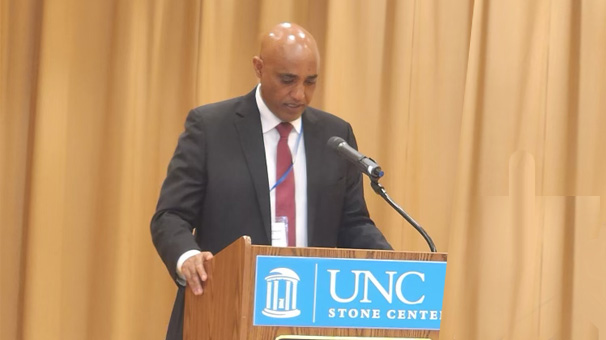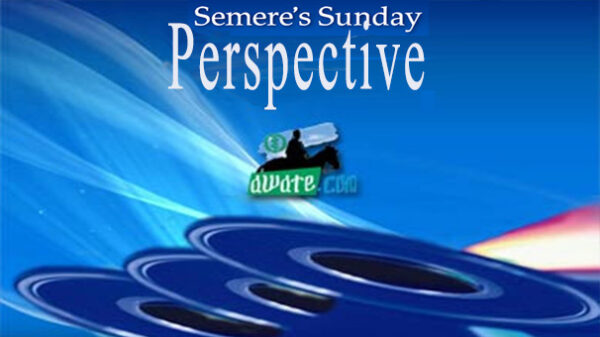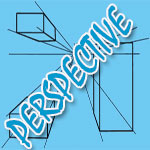The Literary Works of Bereket Habte Selassie (LL.B., Ph.D.)

A Portrait of a Political Thinker and Freedom Fighter
Ladies and gentlemen,
It is a great honor to speak to you today about one of the most remarkable thinkers, writers, and freedom fighters to emerge from the Horn of Africa—Dr. Bereket Habte Selassie.
A legal scholar by training, a political reformer by necessity, a revolutionary by conviction, and an author by soul—Dr. Bereket has lived a life shaped by the great upheavals of our history. But he has never been content to simply survive them. Instead, he has chronicled them, wrestled with them, and from them, fashioned literature that speaks to the heart of justice, love, reconciliation, and democratic hope.
His literary works speak to me personally—they cover the entire span of my life. His stories begin in 1969, a year before I was born. I am the child of the revolution, and, most importantly, its helpless and innocent victim. The revolution has claimed the lives of over two dozen of my immediate family members and made me a refugee at the tender age of five. Once a refugee, always a refugee—the desire to return home never dies. The sad thing is that I am not the exception but the rule in Eritrea.
One Saturday morning, on February 2, 1975, the Ethiopian soldiers descended on our idyllic village like a swarm of locusts and massacred over a hundred of our loved ones. The next day, the soldiers allowed us, the survivors, leave the village. That was the first time, I became a refugee, or to use the exact jargon—an internally displaced person (IDP, for short). My mom took us to the village of her family in an area the EPLF claimed as its own home-turf, and we were immediately subjected to their continual and cruel harassments because my father had joined their rival organization, the ELF. What made this partisanship absurd was the fact that it was geography and access to the fronts that determined, for the most part, who joined which of the two rival organizations.
When the ELF liberated Mendefera in 1977, an area that it regarded as its home-turf, my mother had to sneak all of us, under the cover of darkness, from the shackles of the EPLF, and once again, we became IDPs for the second time. When the DERGE, with the help of the Soviet Union, Cuba and others, retook Mendefera in 1978, we left Eritrea once and for all and sought refuge in the Sudan and 11 years later, we resettled in the USA. I have never been home since that fateful Saturday in 1975.
A day has never gone by where I don’t ask myself if the revolution was worth it, and I am compelled to go back to the day in July of 1959 where three prominent middle-aged Eritreans met in Cairo to decide on what needs to be done to rid Eritrea of Ethiopian occupation and its feudal system. The three agreed on the end but not the means of achieving independence. The former speaker of parliament, Idriss Mohamed Adem, was clear that the armed struggle was the only option for Eritreans, while the former president of the Independence block, Ibrahim Sultan Ali, argued in favor of a political struggle. The third giant, Woldeab Woldemariam, was generally in line with the former, but he did not endorse it for operational misgivings. A year and three months later, the Eritrean armed struggle was launched under the leadership of Hamid Idriss Awate and the rest is history as they say. We can only imagine what history would have become had Ibrahim Sultan Ali had gotten his way.
Literary works of the likes of Dr. Bereket help us and it certainly helped me make sense of a world that had gone mad through no fault of mine. His characters know firsthand that in war, the innocent always pay. Dr. Bereket has lived through the whirlwind—and in his novels, we ride it with him. He was a front-line witness to history and speaks with the wisdom of experience. Through his literary works, we engage every facet of his characters’ lives—with all five senses. He explores the gray areas of morality, power, and history.
In the preface to his play The Devil in God’s Land, Dr. Bereket compares the work of a playwright to that of a sculptor—chiseling out of raw historical reality. And that is exactly what he has done across his literary works: Riding the Whirlwind, Deliverance, Defiance, and The Devil in God’s Land—each a literary monument, each a lens into the soul of a generation burdened with both great dreams and terrible trials. A generation “infected by the spirit of revolution,” a generation that believed itself to be “summoned by history to play a special role”
Dr. Bereket is a moral philosopher with the zeal of an evangelist. He inherited this passion, perhaps, from his father, the late Qeshi Habte Selassie, a renowned preacher from the windy village. Adi-nefas is also the author’s birth place where he spent his formative years. But unlike his father’s gospel of the pulpit, Dr. Bereket preaches through the written word—calling on all of us to, in the words of the prophet Amos, “let justice roll down like waters, and righteousness like an ever-flowing stream.”
He has never stopped believing that hope is eternal—even when revolutions faltered, and nations fell into cycles of tyranny. At 93, he is like an old stallion eager to race again. He seeks to be a rainbow in the cloud of the Ethiopian and Eritrean people. He still speaks, still writes, still teaches. He believes that even from great evils, great good can come. He knows that history is not a sealed vault—it is a path still being walked. And he continues to light that path. His undying dream would only be realized if the people become the blacksmith of their own destiny and the bricklayers of their democracy.
His pen is his weapon. As Prophet Muhammad said, “The ink of the scholar is more sacred than the blood of the martyr.” Dr. Bereket’s ink has chronicled revolutions, dissected ideologies, and elevated love, forgiveness, and empathy above hatred and vengeance.
He reminds us that revolutions may be necessary, in rare situations—but without wisdom, they can become whirlwinds of destruction. They are like double-edged swords that require absolute care and prudence. They are like water that carries the ship, and can also sink it. They are, oftentimes, like big winds and little rain.
Eventually, revolutions become about “mechanics of attaining and maintaining power,” (Riding the Whirlwind) and “a deadly fight for the capture of a fugitive glory.” (Deliverance) When seizing control becomes the end goal, morality becomes expendable. Berhane in Riding the Whirlwind observed that, “Gebre-Meskel is a psychopath. He would do anything to satisfy his crazy urges.” In the end, it all boils down to, “If power is for sale, sell your mother to buy it—you can always buy her back.”
In Deliverance, a character warns: “The colliding passions of groups with similar ideologies governed the course of events, with violence as the inevitable arbiter.” Revolutionaries once united by ideals, tore each other apart over power.
One of history’s most tragic ironies is that revolutionary groups with similar goals often become mortal enemies. Like dogs fighting over a single bone, the closer they are ideologically, the fiercer their conflict. When not fighting, they rarely cooperated—like beggars unwilling to walk together. The multitude of revolutionary “alphabet organizations” that sprang up across Ethiopia and Eritrea were perpetually at each other’s throats: EPRP vs. MEISON, TPLF vs. TLF, TPLF vs. EDU, ELF vs. ELM, ELF vs. EPLF etc., all espousing the very same ideology. “The dispute over ideological purity was plainly a charade.” (Deliverance) It was, indeed, a time of relentless clobbering in Eritrea and Ethiopia.
And in Riding the Whirlwind, Dr. Bereket’s character Dr. Desta mourns a revolution that devoured its own children. The lofty dreams of liberation turned into nightmares of betrayal and brutality. “We disturbed those ancient ways,” he says, “without offering any better alternative.”
These are not just the musings of fiction—they are the lived experience of a man who helped draft constitutions, who witnessed both the rise and fall of revolutionary hopes, and who understands that while ideologies divide, shared humanity must unite.
Power, once seized, became an end in itself. Morality was left by the roadside. But despite these grim truths, Dr. Bereket never surrenders to cynicism. His novels are deeply infused with the redemptive power of forgiveness and love. As he reminds us, love is not just an emotion—it is the ultimate bridge. The Bible teaches, “live a life filled with love.” The Quran reminds us that one of God’s names is Al-Wudud—the Most Loving.
Love, in Dr. Bereket’s view, is what makes reconciliation possible. His fictional Union of Veteran Fighters for Justice champions forgiveness over revenge. Its motto—“Love to all, hatred to none”—is not mere sentiment. It is a revolutionary act in a region where wounds are deep and scars are fresh.
And this is his enduring appeal: he never writes just to reflect the world as it is. He writes to imagine what it could become. He lights candles in the darkness. He invites us to walk forward, not backward. To plant trees whose shade we may never sit under.
He understands that the revolutions that swept Ethiopia and Eritrea may have failed in their immediate aims—but their deeper lessons must still be learned. History is a stern teacher, but it is also a generous one—if we choose to listen.
And here is the brilliance of his literary genius: through characters like Desta, Aster, Akalu, Idris, Negassa, and others, he gives voice to all sides—the dreamers, the doubters, the zealots, the betrayed. These characters wrestle with love and loyalty, identity and ideology, faith and fear. And through them, we come to know not only the author—but ourselves.
Storytelling, he knows, is one of the oldest and most powerful tools for healing and understanding. Through it, he invites us into empathy—to feel, to remember, and above all, to hope.
“The bitterness of an onion is known not by the one who eats it—but the one who cuts it.” Dr. Bereket has cut many onions. He has lived the revolutions and exiles, the betrayals and the reconciliations. But instead of tears, he gives us his insights.
He stands in a long tradition of writers who have refused to be indifferent to injustice. As he says in Deliverance, “A writer’s duty is to be counted on the side of justice and truth.” For him, literature is not an escape—it is engagement.
His dream of a united Ethiopia and Eritrea, in particular, and the Horn of Africa in general, bound not by force but by mutual respect and shared destiny, is not naïve. It is deeply practical. It is born not of nostalgia, but of necessity.
And what makes Dr. Bereket truly rare is this: he does not simply recount history. He redeems it. He reminds us that while we cannot undo the past, we can shape the future. “No amount of guilt can change the past, and no amount of worry can change the future.” What matters is what we do now—with courage, with love, and with resolve.
As he urges his generation: “Plant trees whose shade you may never enjoy.” That, he believes, is how peace begins. That is how democracy endures. That is how justice rolls on—like water.
Let me close with the words of one of his characters, Aster, who reminds us:
“There is nothing wrong with asking questions in search of the truth. We need that. In fact, that’s what has been missing here for a long time.”
Dr. Bereket has asked those questions. He has searched for that truth. And in doing so, he has gifted us a body of literature unmatched in its passion, its depth, and its humanity.
One can only wonder: what might he have become had he pursued literature with singular focus? With his talent and intellectual curiosity, Dr. Bereket might well have joined the pantheon of African literary giants such as Wole Soyinka, Naguib Mahfouz, and Abdulrazak Gurnah.
No body of literature has captured the hopes, contradictions, and aftermath of those revolutions more powerfully than his. Read together, his novels and play offer a comprehensive portrait of the revolutionary generation. And if one were to choose a single book that epitomizes his literary legacy, Riding the Whirlwind would undoubtedly stand as his magnum opus.
May we read him. May we remember him. And may we carry forward the better world he dared to imagine.
Thank you.



Awate Forum